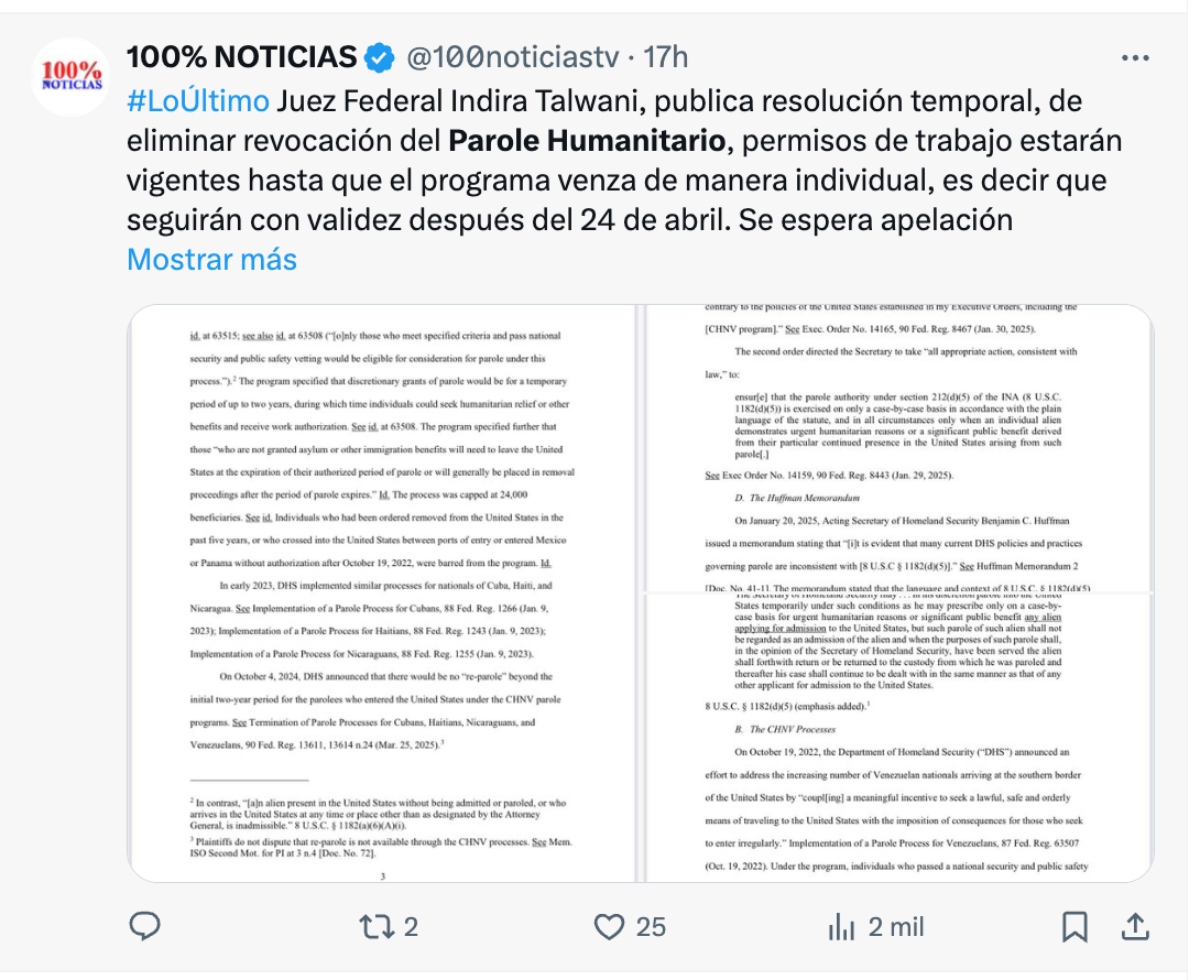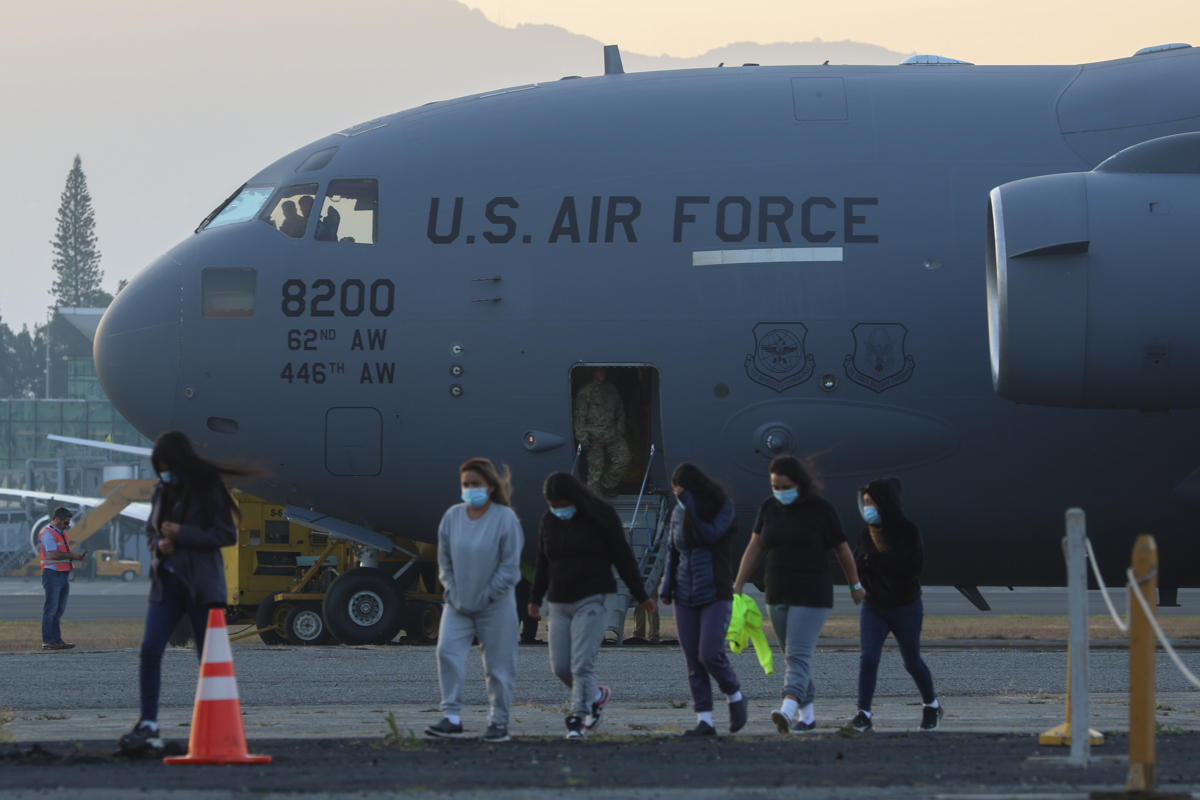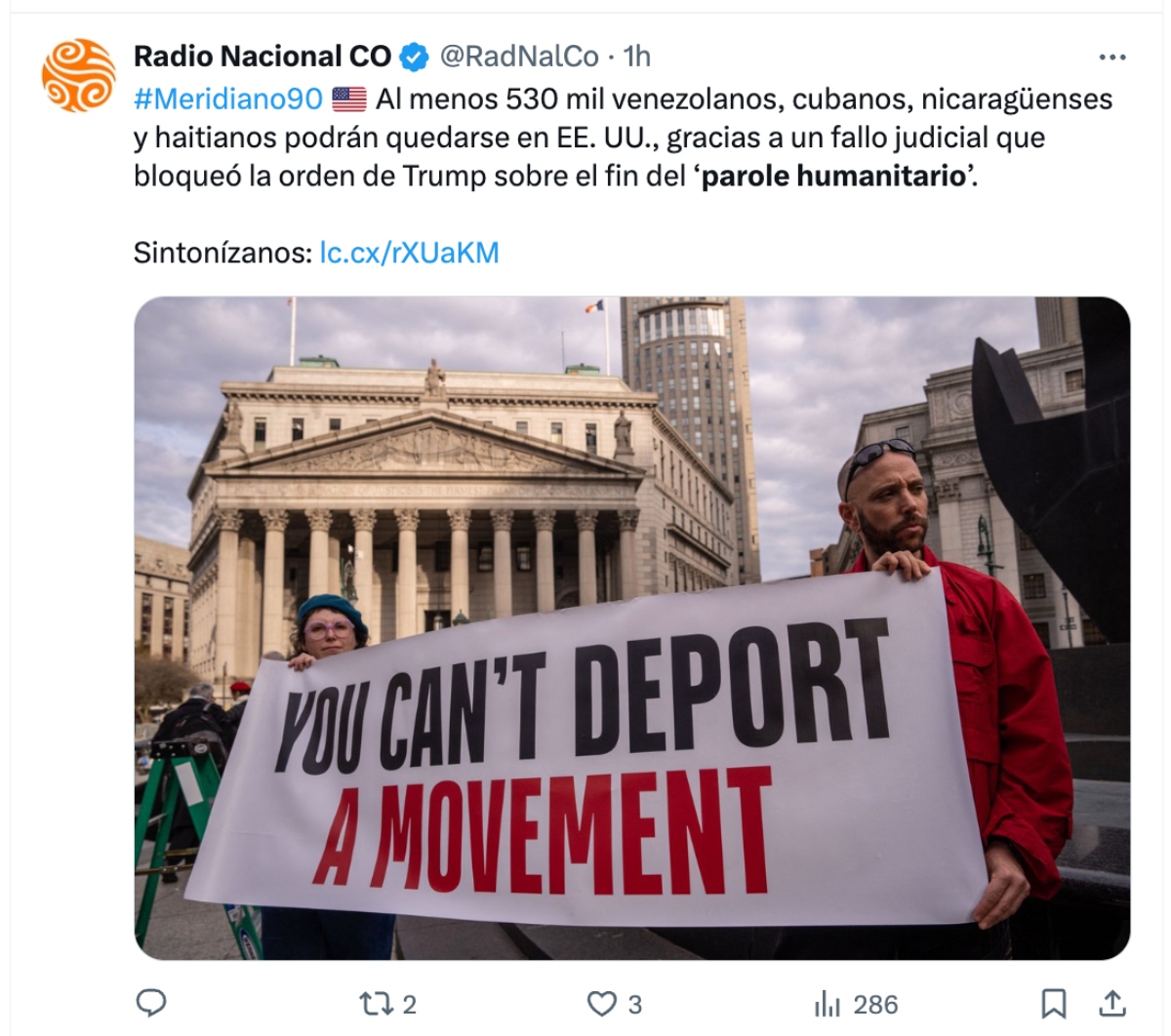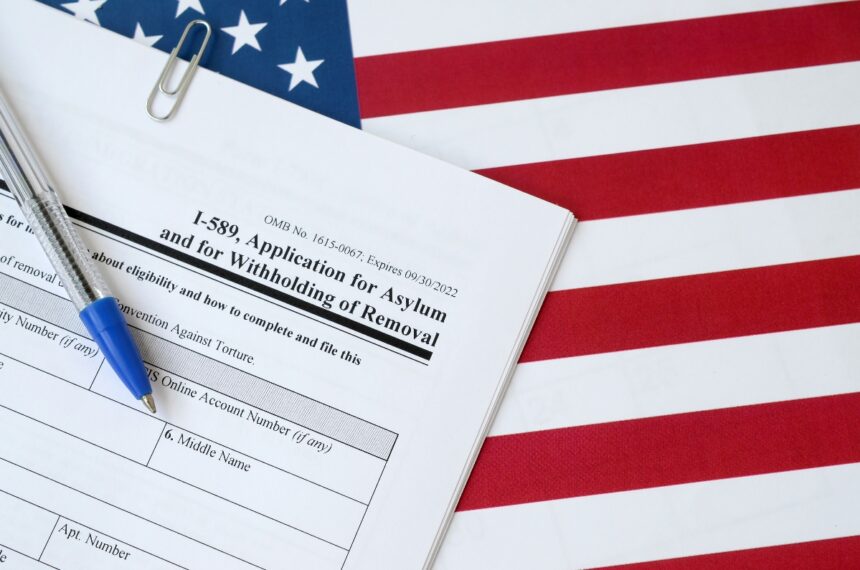On April 15, 2025, federal Judge Indira Talwani of the U.S. District Court of Massachusetts temporarily blocked President Donald Trump’s executive order seeking to repeal the “humanitarian parole” (CHNV) program for migrants from Cuba, Haiti, Nicaragua and Venezuela.
This ruling prevents, for now, more than 530,000 people from losing their legal status and work permits in the United States as of April 24, according to media outlets such as El País.
What is the CHNV program?

The CHNV program was implemented by Joe Biden’s administration in 2022 for Venezuelans and extended in 2023 to Cubans, Haitians and Nicaraguans.
It allowed citizens of these countries to enter the U.S. legally for a period of two years, provided they had a financial sponsor in the country.
Beneficiaries obtained work permits and protection against deportation. The objective was to provide a legal avenue for migration and reduce irregular border crossings.
Attempted revocation and judicial response

Upon his return to the presidency in January 2025, Trump signed an executive order to end the CHNV program, arguing that it did not provide significant public benefit and was due to cease on April 24.
The Department of Homeland Security (DHS) began sending notices to beneficiaries, urging them to leave the country or face deportation.
However, Judge Talwani ruled that revoking legal status en masse without an individual review of each case violates due process.
His ruling temporarily suspends Trump’s order and deportation notices, providing a respite for beneficiaries while the lawsuit filed by organizations such as the Justice Action Center is resolved.
What should CHNV beneficiaries do?

Although the court ruling offers temporary protection, it is crucial that CHNV beneficiaries explore other legal avenues to remain in the U.S., such as.
Apply for asylum: if they face persecution in their country of origin.
Apply for Temporary Protected Status (TPS): if eligible.
Seek other forms of adjustment of status: such as permanent residency, if eligible.
It is recommended that you consult with an immigration attorney or go to community organizations for personalized guidance.
Judge Talwani’s decision represents a significant setback for the Trump administration’s efforts to dismantle immigration programs established by the previous administration.
For CHNV migrant beneficiaries, this ruling offers an opportunity to regularize their immigration status and avoid deportation.
It is essential to stay informed and seek legal advice to navigate this complex immigration landscape.
Frequently asked questions about CHNV humanitarian parole
What is CHNV humanitarian parole? It is a temporary immigration program that allows people from Cuba, Haiti, Nicaragua and Venezuela to reside legally in the U.S. for two years.
Can I renew my parole if I am a current beneficiary? For now, no. The Biden administration did not renew it, but there is temporary protection thanks to the court ruling.
What if I have already received an exit notification? Consultation with an attorney. Judge Talwani’s ruling temporarily halts these actions.
Revoking legal status en masse without individual case review violates due process
Judge Indira Talwani
For more news, visit QuéOnnda.com.























